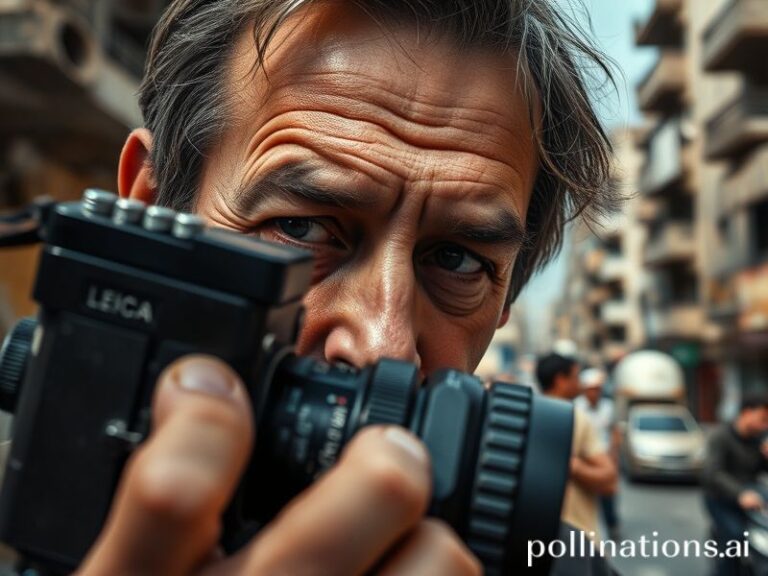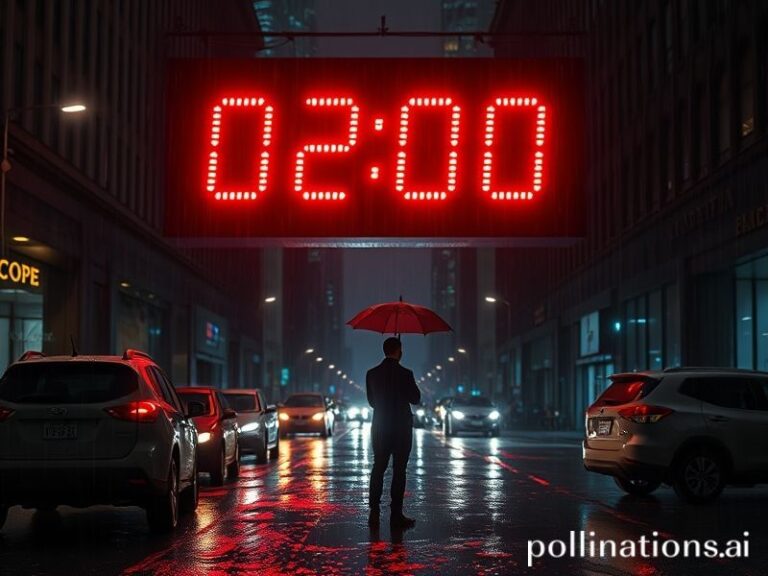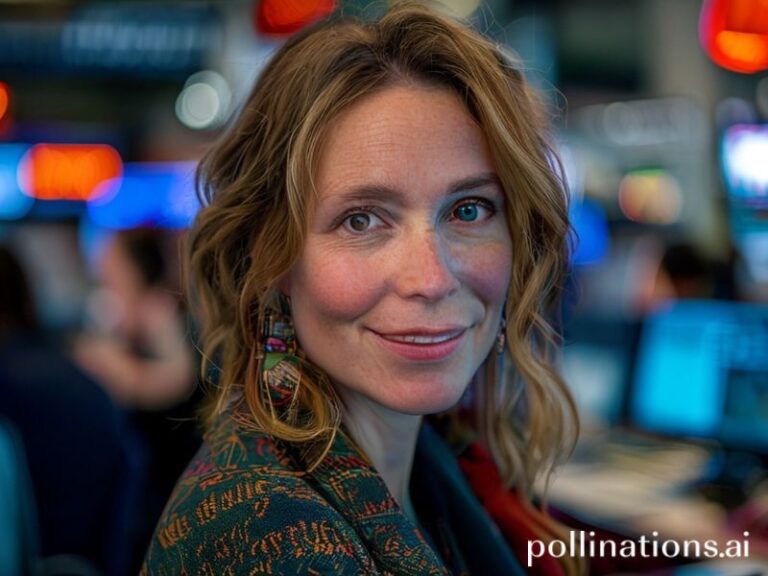America’s Nicest Inquisitor: How Katie Couric Became the World’s Polite Omen of Imperial Collapse
When Katie Couric sat down with Sarah Palin in 2008, the moment ricocheted from Anchorage to Abu Dhabi faster than a sub-prime mortgage collapse. To Americans it was a “gotcha” interview; to the rest of the planet it was an omen—proof that the empire’s next-in-line couldn’t name a newspaper she read. Couric, ever the polite coroner of reputations, merely furrowed that famous brow and let the governor self-immolate in real time. From Seoul stock-exchange floors to Berlin pubs, viewers sipped Cass beer or Pilsner and thought, “Blessed are the moderators, for they shall inherit the smoking ruins.”
Couric’s global footprint, however, predates Palin’s crash landing. In 1991 she co-anchored the Today show while Boris Yeltsin climbed atop a tank in Moscow—an image CNN piped into every hotel lobby from Lagos to Laos. Americans saw Couric’s perkiness as a national sunrise; abroad she became the chipper soundtrack to the Soviet funeral march. We later learned that history doesn’t end—it just changes channels.
Fast-forward to 2014: Couric, now global anchor for Yahoo News, interviewed Iranian President Hassan Rouhani. The stakes were higher than her 1990s cooking segments: ballistic missiles, centrifuges, the price of crude in Rotterdam. Rouhani, practiced in the Persian art of smiling stonewalling, faced Couric’s Midwestern politeness—equal parts butter knife and scalpel. European diplomats later admitted they mined the transcript for micro-expressions the way Kremlinologists once studied May Day photos for missing Politburo members.
What makes Couric internationally significant is not her interviews but her delivery system: a distinctly American concoction of empathy and interrogation. In countries where journalists are jailed for asking the wrong follow-up, Couric’s polite incredulity feels like a superpower. During the 2016 U.S. election, a Nairobi taxi driver told me, “Your lady Katie asks questions like she’s borrowing sugar, then you realize your house is on fire.” Dark laughter all around—because everyone’s house is, in fact, combustible.
Her cancer-screening crusade likewise traveled well. After Couric’s on-air colonoscopy in 2000, colonoscopy rates jumped 20 percent in the United States; in Japan, where discussing bowels is less taboo than confessing love, health officials piggy-backed her stunt to boost their own stubborn screening stats. When the Japanese Ministry of Health subtitled the segment, they mistranslated her chipper sign-off as “Let’s all peek inside ourselves,” inadvertently creating a minor hit meme. Globalization in a nutshell: earnest American rectal enthusiasm repackaged for karaoke night.
Yet the darker joke is that Couric’s brand of civility now looks antique. In a media ecosystem where presidents tweet obituaries before the bodies cool, her “thoughtful pause” feels like using a hand-cranked telephone in a 5G wildfire. Last year, when she asked a Facebook executive about genocide-adjacent algorithms, the exec countered with talking-point origami so dense it could have folded itself into a Fortune 500 swan. Couric blinked—an almost imperceptible flicker—then moved on. Viewers from Manila to Manchester recognized the choreography: the moment when journalism meets immovable capital and quietly concedes the floor.
Still, she persists, now hosting a podcast where she trades quarantine recipes with Dr. Fauci and Malala. It’s comforting, in a doomed sort of way, to hear two Nobel laureates and a trailblazing anchor discuss sourdough starters while India burns through oxygen. Perhaps that is the final, grim utility of the Couric model: reminding the species that even as the permafrost thaws and supply chains snap, we can still schedule a Zoom, smile on the count of three, and pretend the buffering wheel isn’t the eye of Sauron.
Couric once asked Palin what newspapers she read; the world is still waiting for a satisfactory answer. Until then, we flip channels, watch glaciers calve in HD, and take grim solace in a broadcaster who still believes the right question—asked sweetly enough—might postpone the apocalypse by one commercial break.







